Affiliate links on Android Authority may earn us a commission. Learn more.
Google Play Services: Everything you need to know
Published onFebruary 14, 2025
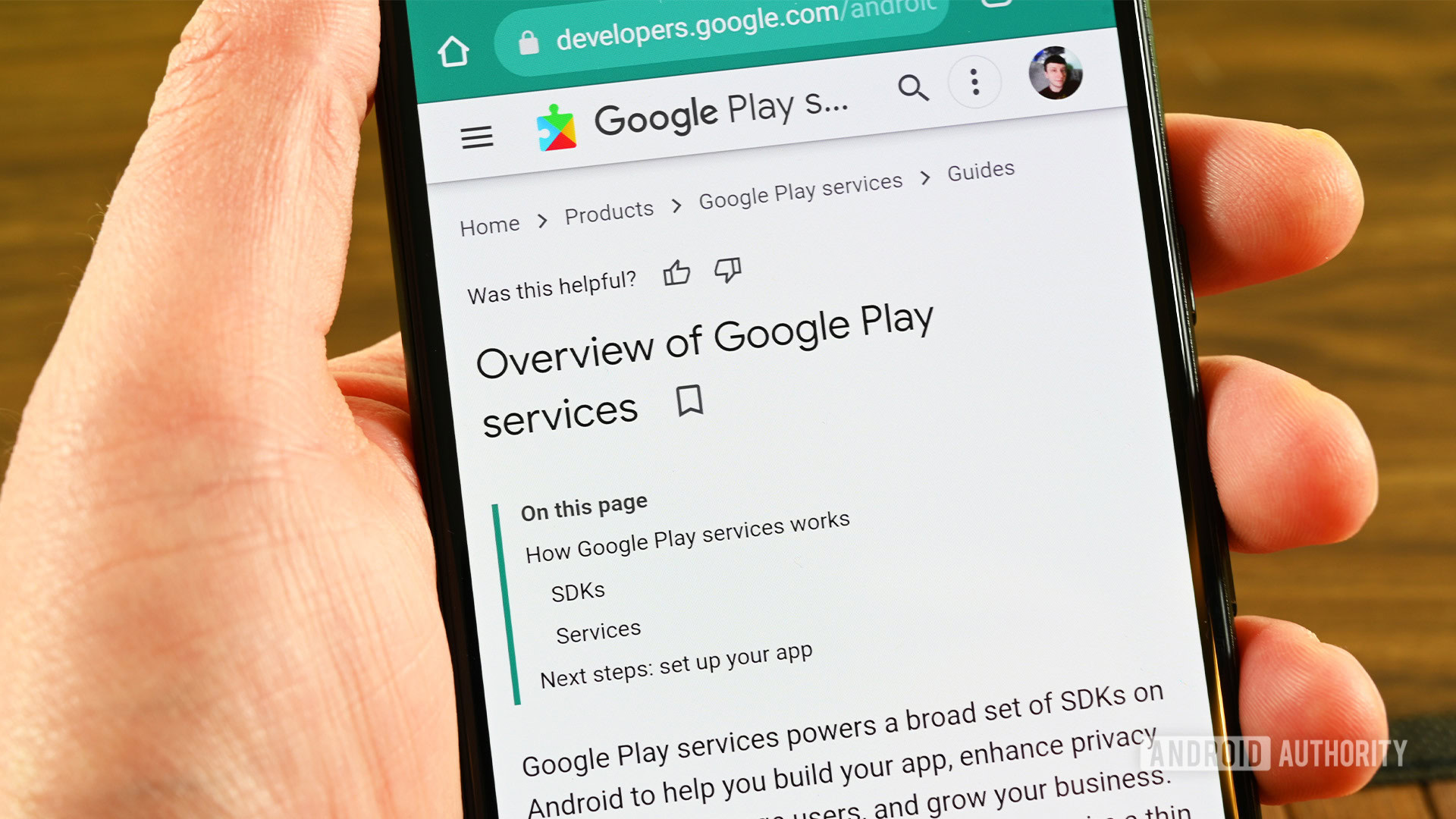
Alongside the Google Play Store, Google Play Services is one of the most important apps on any Android phone. It helps connect everything, provides easy tools for app developers, and helps older Android phones get modern features without needing Android OS updates. For newer users, Google Play Services is also quite elusive. It doesn’t advertise its existence on your phone, which can cause some issues regarding troubleshooting.
QUICK ANSWER
Google Play Services is a software layer between the Android OS and your applications. It can do many things, updates independently of Android, and helps developers make better apps.
JUMP TO KEY SECTIONS
What is Google Play Services, and what does it do?
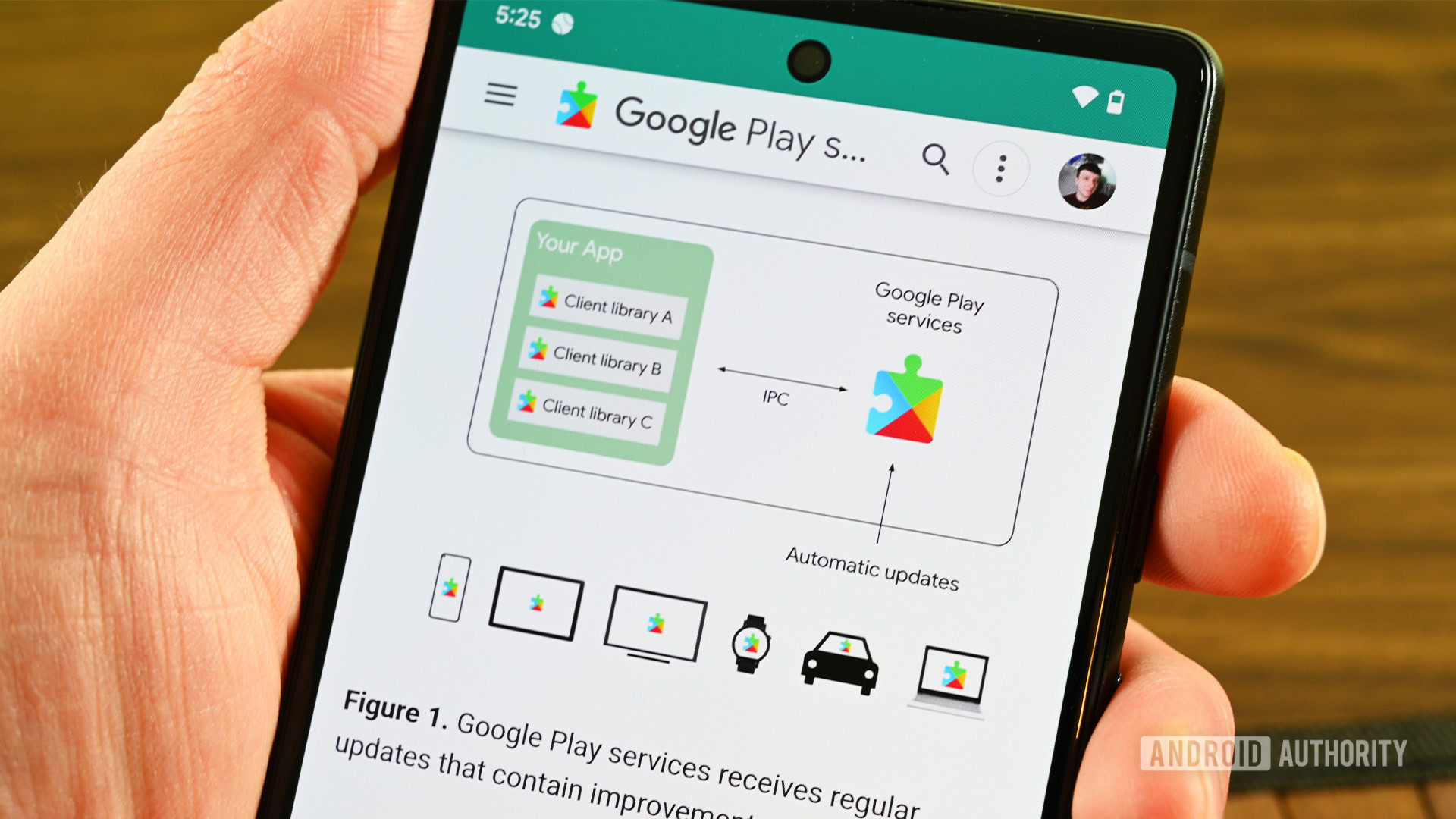
Here is an example of how it works. An app developer has an app that needs to send you a push notification. Play Services has two APIs for that function. The developer uses those APIs in their app. From there, Play Services sends push notifications when the app asks it to without any additional work from the developer.
There are dozens, if not hundreds, of other APIs that help developers do simple tasks in a uniform way. Navigation apps asking for your location probably use Play Services to do it. Think of it as your phone’s manager, sending you notifications, giving apps your location, and running processes in the background for optimal battery efficiency.
The nice part of Play Services is that it lets Google add new features without needing Android OS updates. All they have to do is add a new API to the Play Services library and then update the app on your phone to support it. Many desirable features get rolled out to users this way every year. Of course, the downside is that it can be a real pain to fix when Play Services starts acting up.
How do I update Play Services?
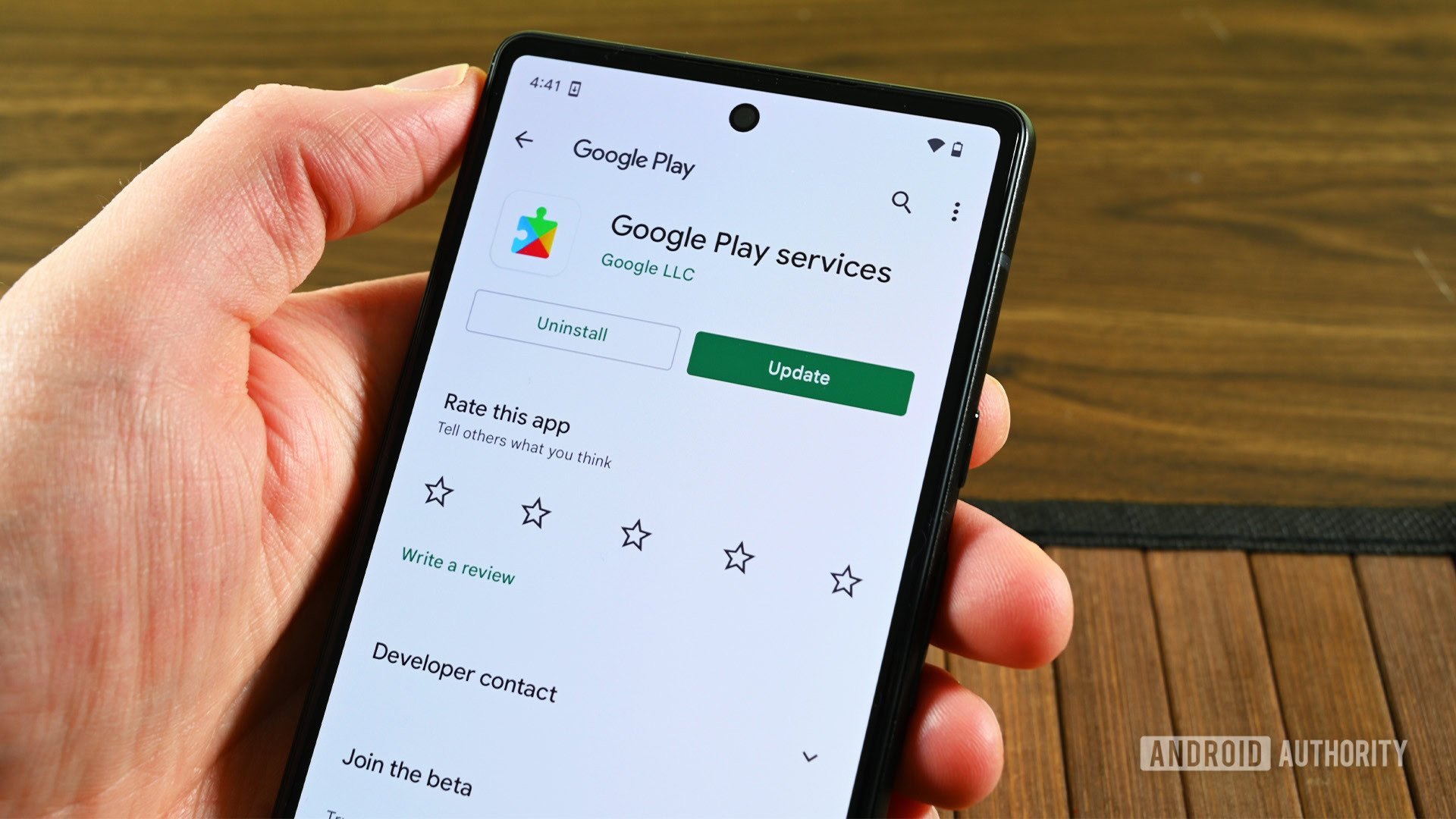
How to update Google Play Services
- Open your phone’s Settings menu.
- Navigate to the Apps section, tap All apps, and scroll down until you find Google Play Services. Tap it.
- Scroll down until you see App details and tap that.
- The phone should open Play Services in the Google Play Store.
- If it needs an update, tap the Update button. Google Play will update the app, and that’s all.
- If you can’t find Play Services on the list, tap the three-dot menu button and choose the Show system apps option.
The above process may vary slightly between devices. For example, Samsung doesn’t require you to hit All apps before showing you a full list of apps.
How do I download and install Google Play Services?
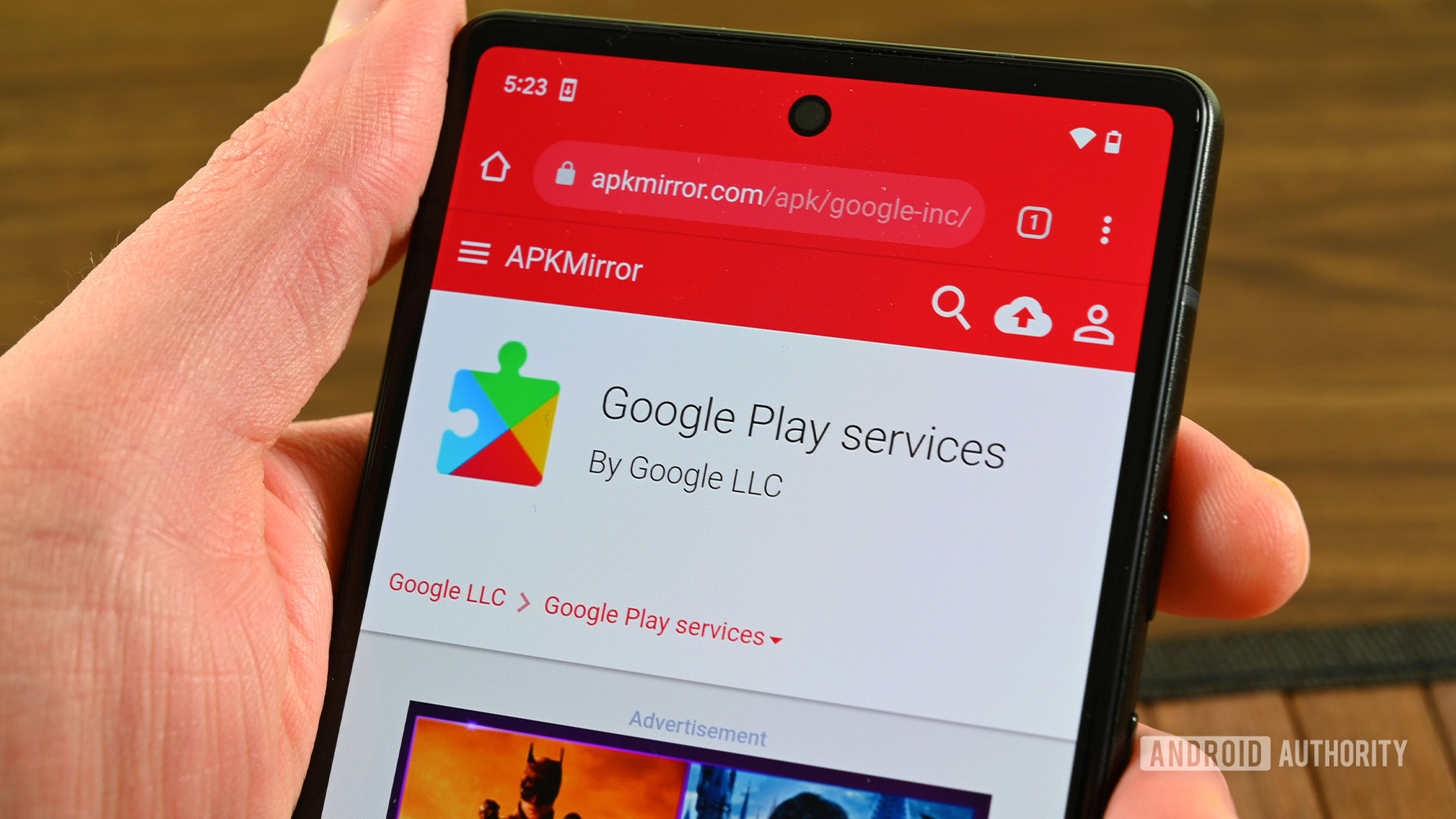
How to identify the proper DPI and architecture for your phone
There are about a dozen different versions of the Google Play Services APK. You need to find the right one for your phone.
- To start, download this app called Droid Hardware Info. We recommend downloading it from APKMirror because it doesn’t require Google Play Services.
- Install the app after you download it.
- If you need additional help installing an APK, you can learn how to install apps on your phone using our tutorial.
- Once installed, open the app.
- Under the Device tab, you’ll find your device’s DPI. Write that number down.
- Slide over to the System tab and write down your CPU Architecture. You’ll need both of those.
How to download and install
- The most reliable place to download Play Services is APKMirror. You can find the site’s repository of Play Services here.
- Please note: There are separate versions of Play Services for Android TV and Wear OS. Make sure you don’t download those unless you need them.
- In the list, select the version of the Google Play Services APK you want.
- You’ll want to download the one that matches the architecture and DPI from the previous steps. If you can’t find your DPI, you can go with the nodpi option, and it should work fine.
- Install the app after you download it.
Please note that improper installation, trying to install the wrong variant, and not installing correctly can lead to failed installations. If your installation fails, start at step one and perform the steps again.
How do I disable and re-enable Play Services?
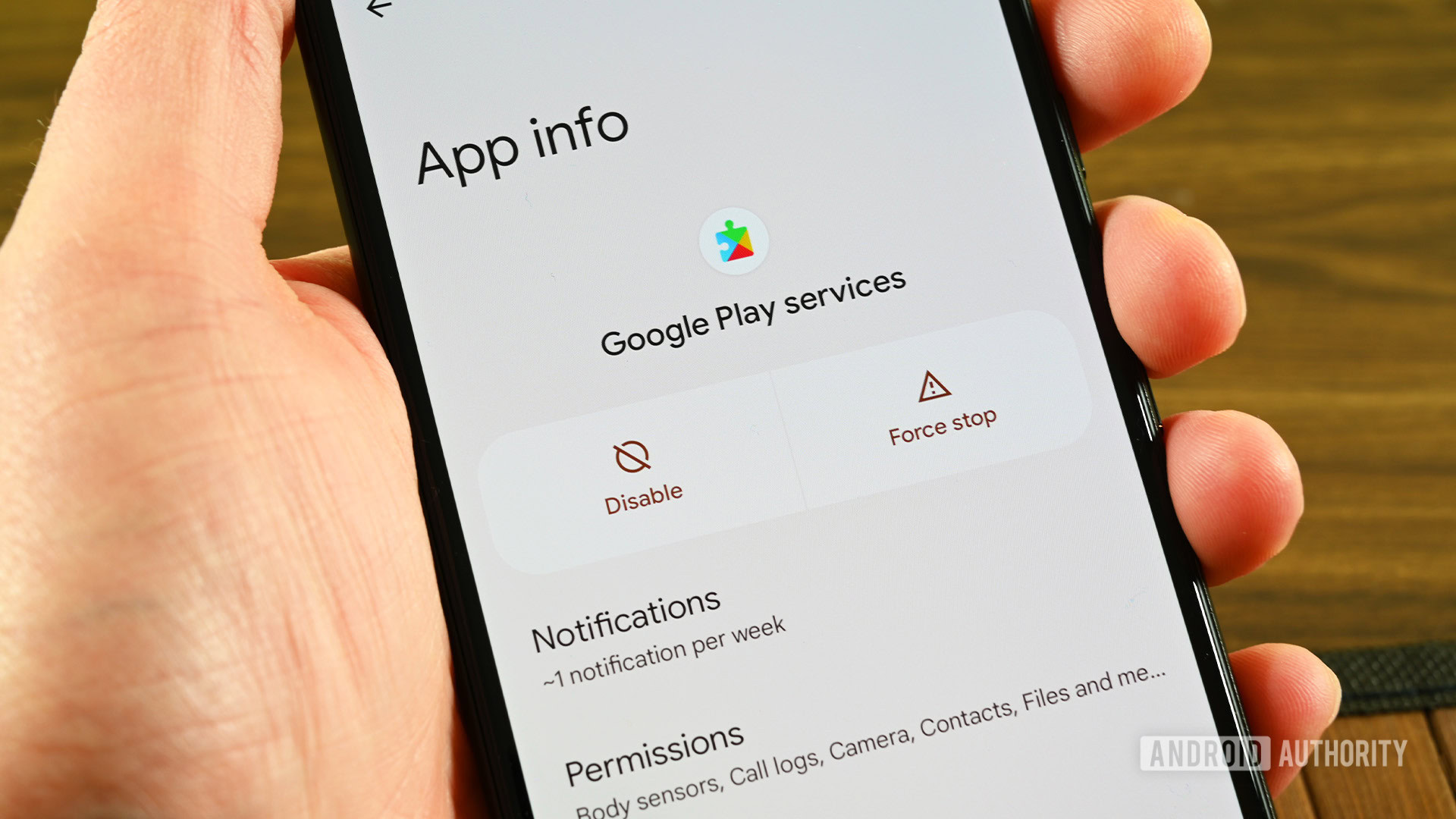
How to disable and re-enable
- Navigate to Settings, then to Apps.
- Tap the All apps option to show a list of full apps (not necessary on every phone).
- Scroll down and select Google Play Services.
- Tap the Disable button. It’ll shoot you a warning about how it’ll affect device performance before it lets you disable it.
- You will almost certainly get several notifications about various apps or services no longer being able to function until you turn Play Services back on. This is normal because Play Services handles a lot of background processes.
To re-enable Play Services, perform the same steps above, except hit the Turn On button.
How to remove permissions
- Once again, follow the steps above to get to the Play Services app page in your Settings.
- This time, tap on Permissions.
- Tap the permission you want to revoke.
- Tap the Don’t allow option.
- Your device will tell you that it may affect the functionality of some stuff.
- Hit Don’t allow anyway to continue.
Again, we recommend using the above methods only for troubleshooting purposes. Play Services is tied to the very core of Android, and disabling it (or its permissions) can negatively affect your device and its performance.
FAQs
You actually can’t uninstall Google Play Services without root access. However, if you did, a lot of stuff on your phone would cease functioning correctly. Examples include carrier services, Android Auto, many apps that send notifications, and most navigation apps. You’ll have to get new apps from sources outside the Google Play Store.
Yes, you should be able to clear Google Play Services cache and data without any adverse effects.
It’s usually just a hiccup in the matrix. Try clearing the Google Play Store and Play Services cache, then try again.